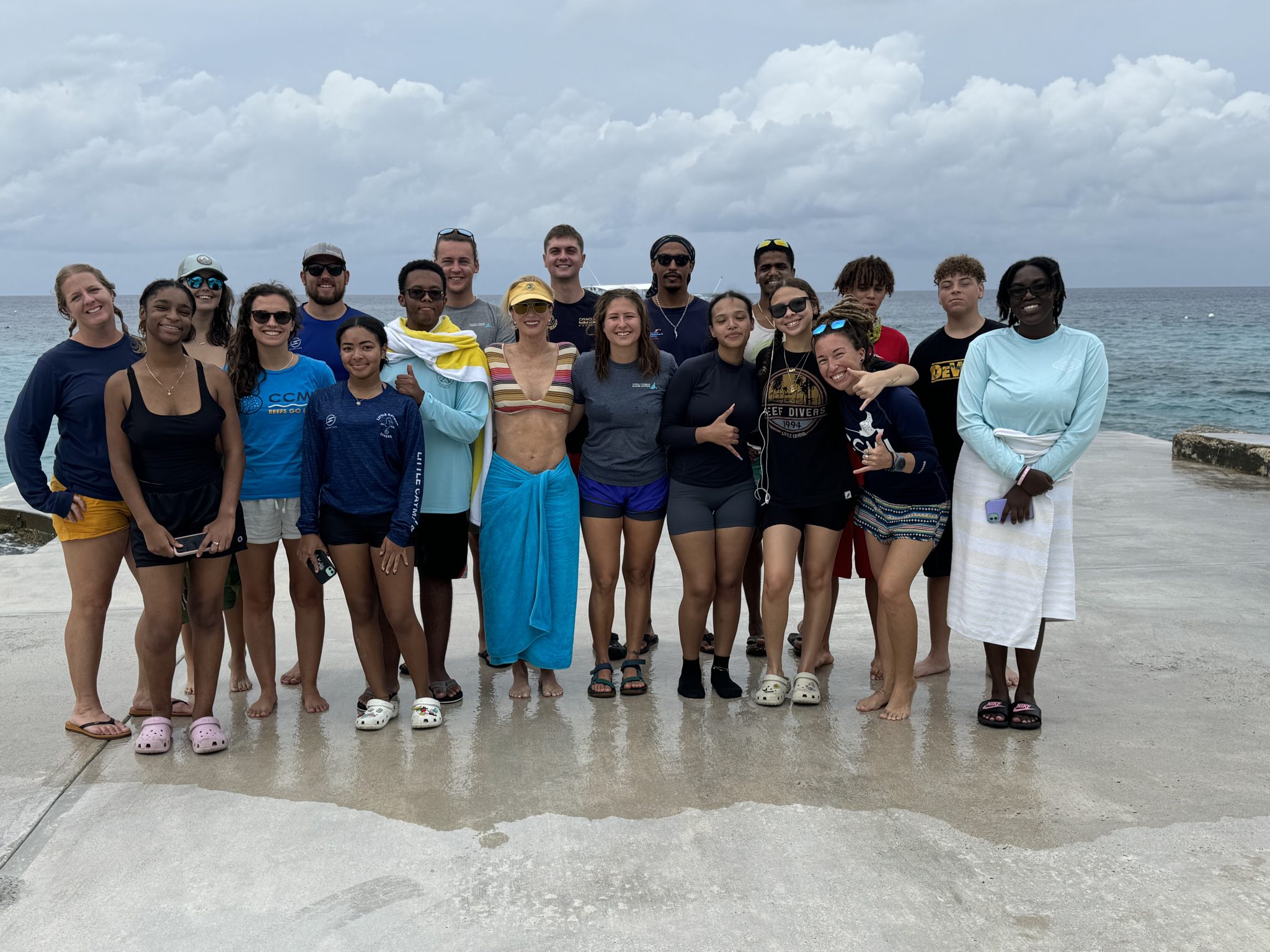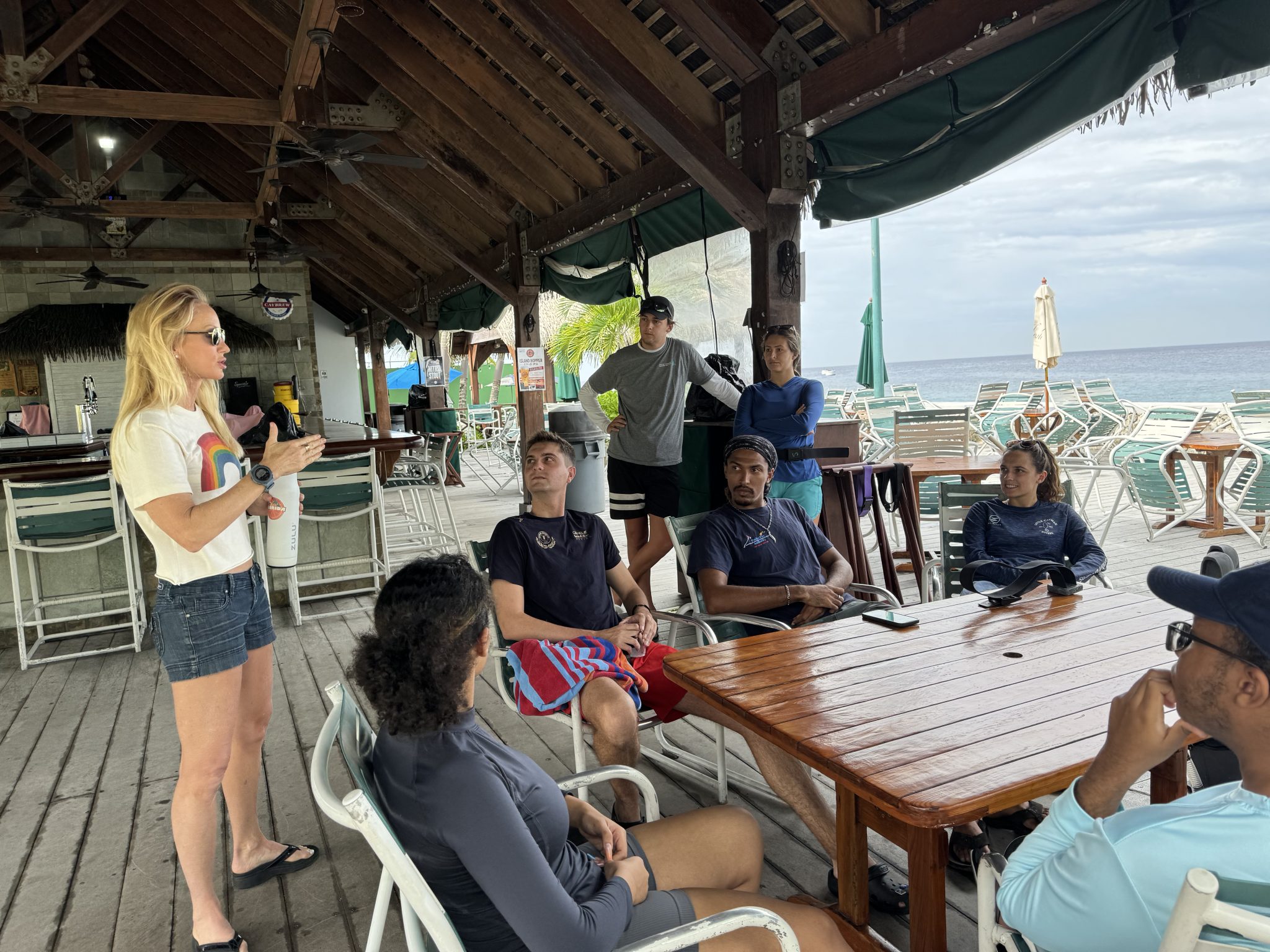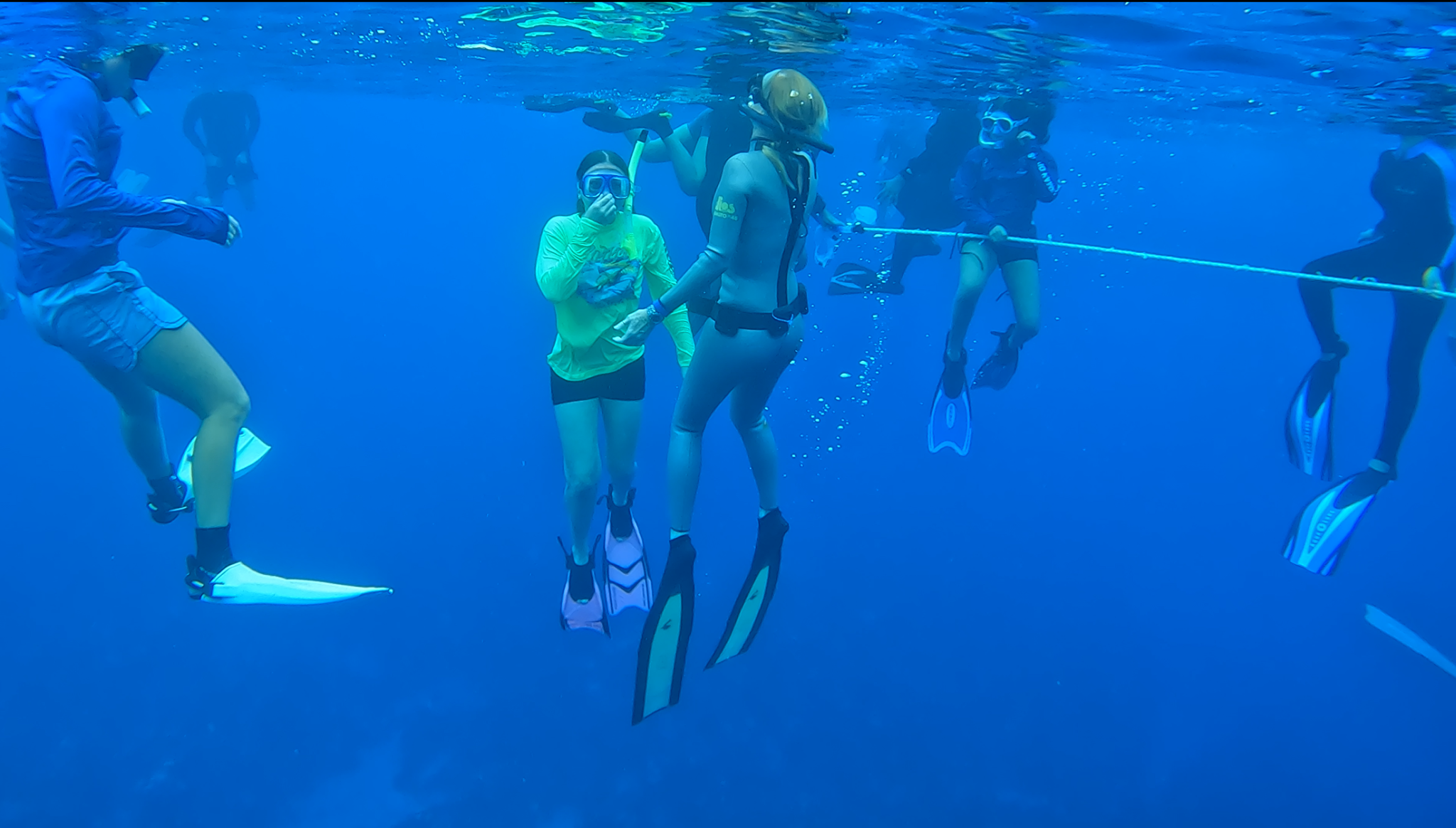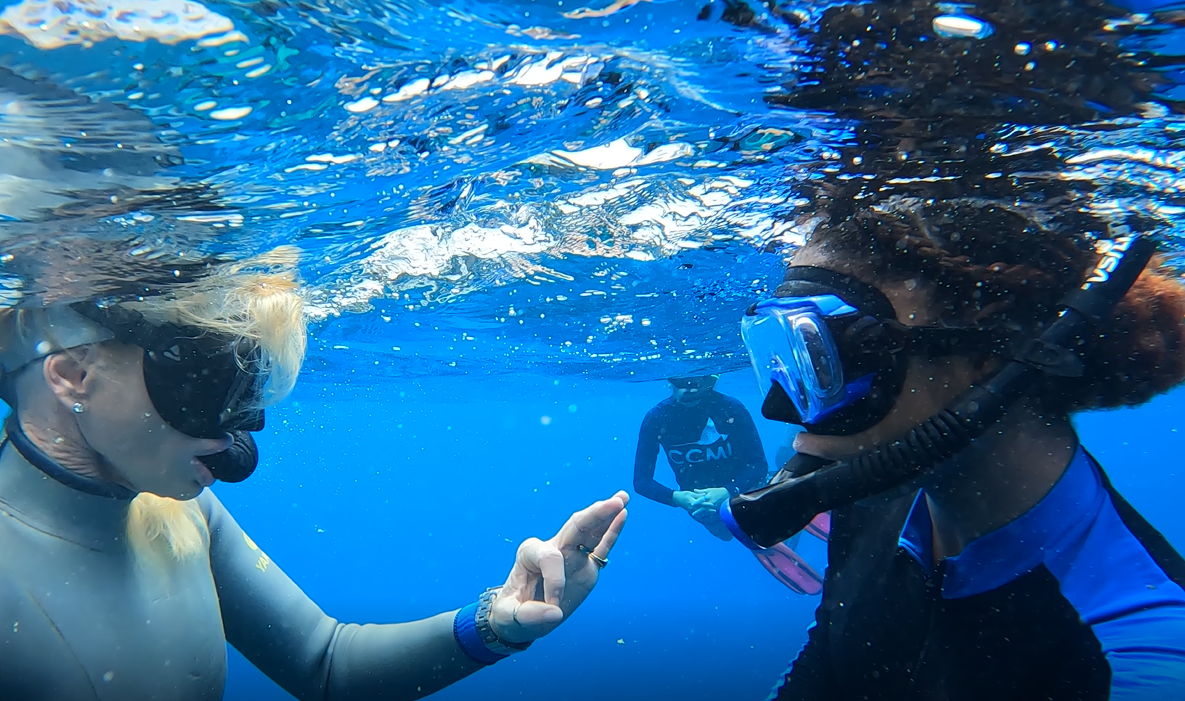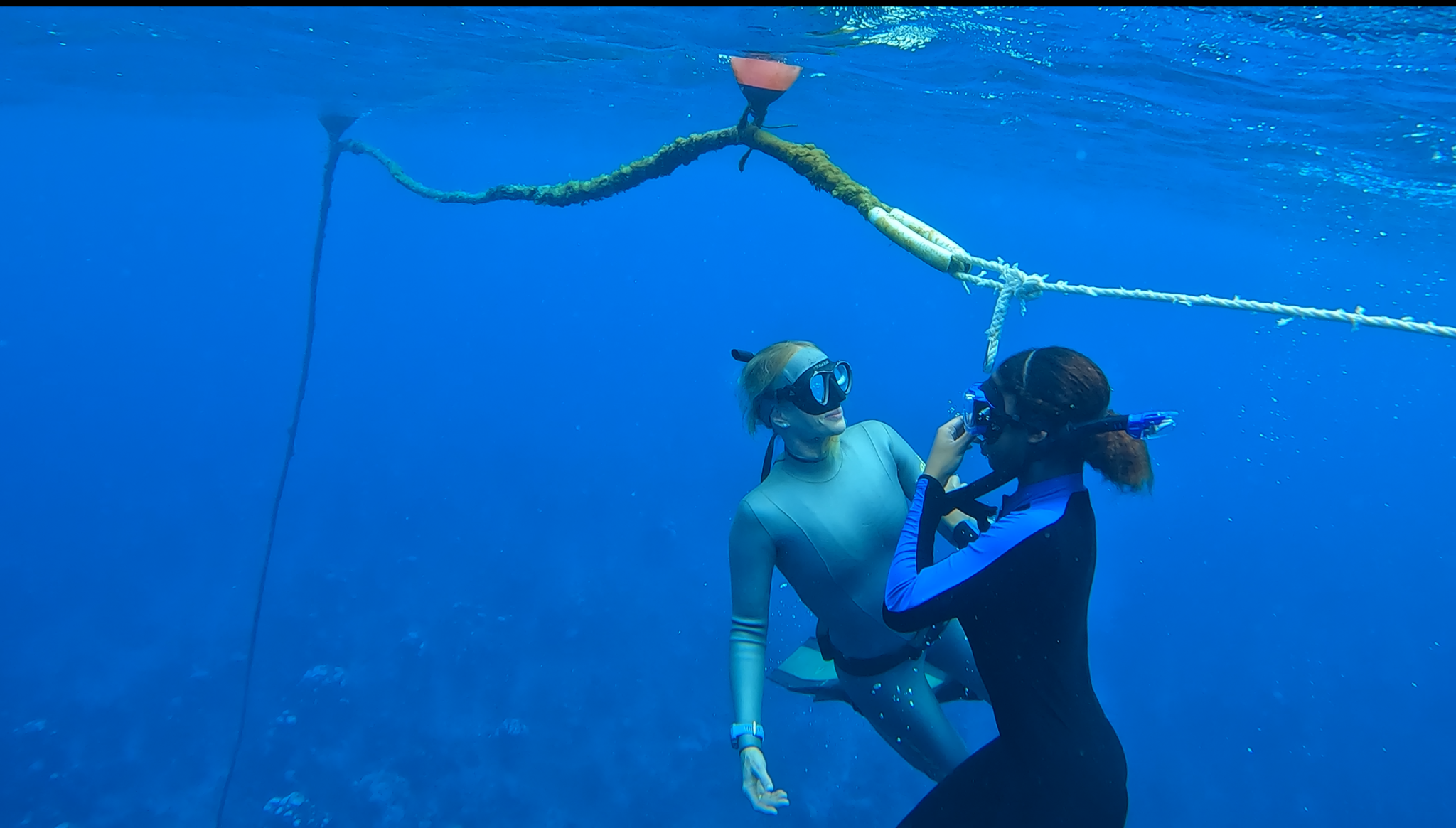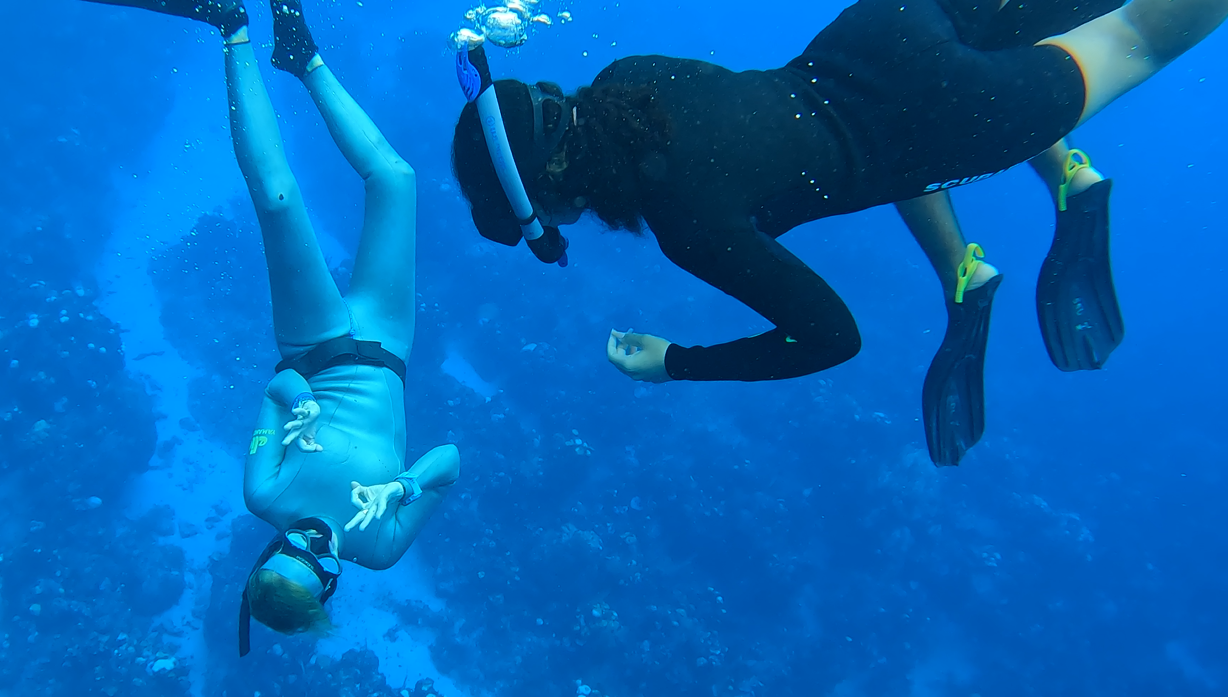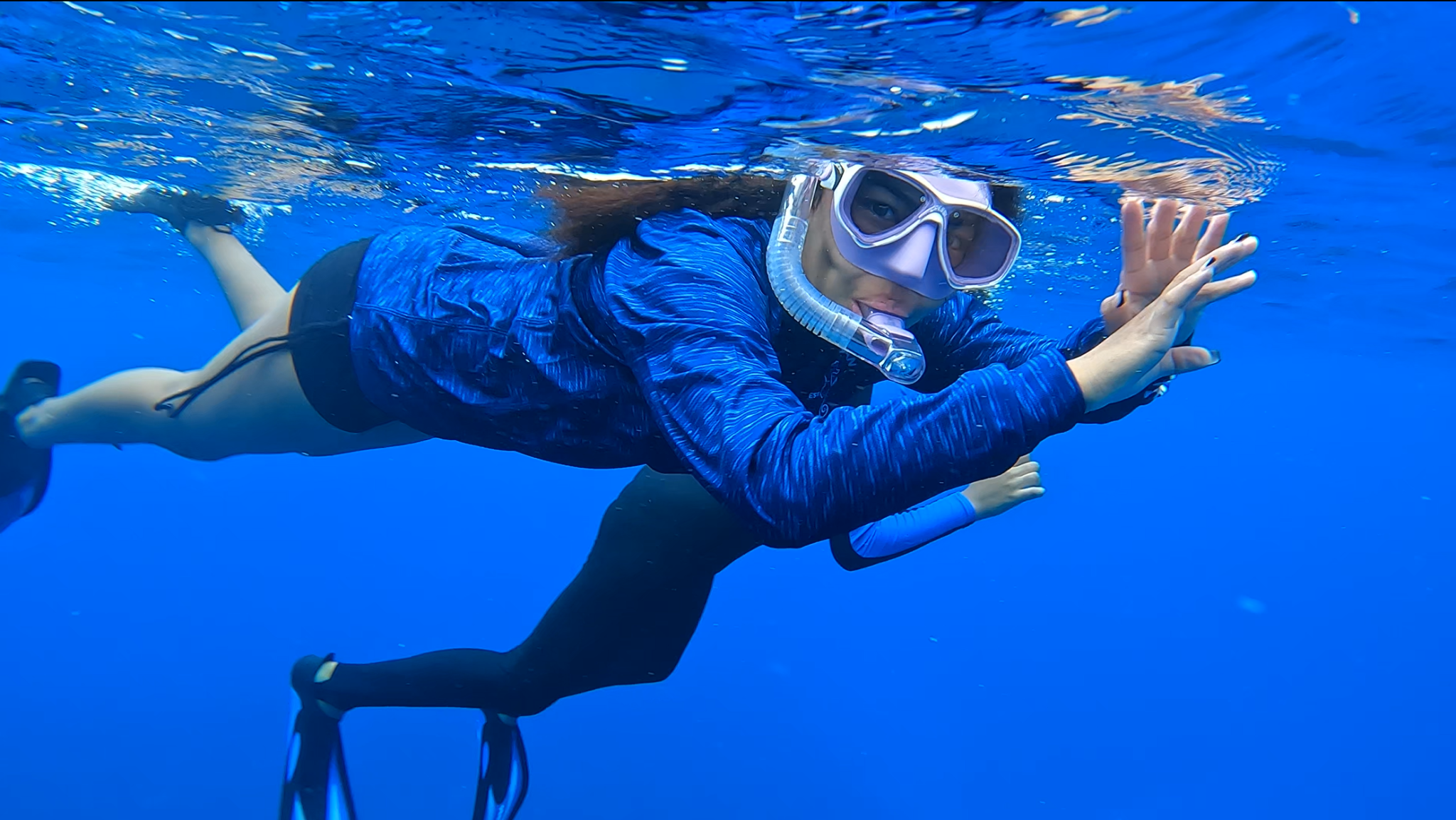Freediving Blogs
My Way Into Freediving
I was freelancing as a cameraman and sound engineer for Swedish television back in early 2000 and my good fortune landed me several jobs abroad, one being in Australia in 2003. It was here in the beautiful blue waters of the Great Barrier Reef where I was reconnected with the sea.
Having lost interest in scuba diving when I was younger, I now viewed the underwater world with the same artistic eye which I used while filming on land. Suddenly, I was looking at the marine life in another light. Maybe I had also grown as a person since my earlier scuba experiences. However, spending three months working with heavy camera sets in the warm, humid temperatures of Queensland, the last thing I wanted was to jump into the stunning reefs with yet more bulky gear. I began to think that surely I’d have enough air to freedive down to 10 metres, position my camera and take the shots I needed without the aid of a tank. It sounded rather simple but I was about to be proved very wrong. I was not a natural breath holder at all and I struggled to equalize. My bodies desire for oxygen felt almost painful, not the feeling I was expecting.
Back home in Stockholm I began searching for information on freediving as I realized that I needed to learn from a pro. It was hard to find any reliable information on the internet as the sport of freediving in 2004 was still very young. Finding training buddies was not easy back then and so I had to stick with swim training. I didn’t do much breath holding exercises until late 2005 when I began training static and dynamic with the safety assistance of the much obliging lifeguards. My aim was not to compete or to do well in the pool disciplines. I just wanted to be in the water, training my apnea skills.
I moved to Sharm el Sheikh in Egypt in 2006 where I also did my scuba instructor course. Being in the ocean every day was a great feeling and I quickly hauled myself up to Dahab, which at the time was about the only place you could take a decent freediving course. It was a mind-blowing experience to enter the blue hole and see the descent lines of the freedivers training there. It looked amazing! I took a course to learn how to breathe and prepare myself for a dive. I wanted to become a better photographer and get close to the marine life. Never had I thought about the competitive side of it, it wasn’t for me. These guys I watched freediving into the depths of the blue hole, looked crazy to me. It was definitely not something I was going to do! A month later I entered my first competition…
I progressed quickly down to 60m but I was split between freediving and scuba diving. I did a few tech diving courses and today I hold trimix level certs on a few different rebreathers. To me rebreather diving and freediving have a lot in common, not only the obvious bubble free dives but also the awareness and closeness you get to the marine life.
I took a break from freediving in 2008 after doing my freedive instructor course. I still taught scuba in the cold Baltic Sea and furthered my education in cold water. But I missed the warm blue ocean and by late 2011 I moved back to the Red Sea.
Half a year later I was asked to coach a friend from Jersey. I was actually in El Gouna at the time. There was no real depth in that area so we decided to meet up in Sharm. I knew Matt from the early days, working as scuba instructors in Sharm, but now he had picked up freediving. He’d been stuck at 36 metres and desperate to reach 50 metres. He was really calm in the water and that was the main reason I agreed to coach him. As the days flew past and I was untying his problems I quickly got my love back for freediving and after only a week, he did a sweet 52m dive and I was completely hooked!
Last summer I trained with some talented freedivers in Dahab and ended the year with a nice 76m dive. Now I work a few days in the week and train 3-4 days, including coaching Allie who in return is a great inspiration and helps me on my technique. You never stop to learn. I have had some ear problems over the last few months, mainly one of my Eustachian’s has been giving me grief. I can equalize but it takes time and for a deep dive, you don’t want to waste time during the descent. Constantly returning to scuba is also not the ideal scenario. It is like low altitude training and we want high altitude… the benefits are that I endorse my dive response and my air consumption on scuba… well let’s just say it’s not very high.
But the next part of my story is so far un-written. I don’t believe in setting aims in depth but all I can do is my best and I look forward to competing for Sweden in the World Championships. We’ll keep you updated in the last few weeks in the run up to the Competition and hope our training is of help and interest to you.
Blogs
Freediver Christian Redl Sets His 13th World Record at Lake Neufeld

Freediving champion Christian Redl achieved his 13th world record at Lake Neufeld together with his teammates by completing 55 dives of 20 meters with just one single breath each, a feat that in total is comparable to the depth of the Mariana Trench! Within 4 hours and 26 minutes out of a planned total of 5 hours, the project was made possible thanks to the support of Cressi, which supplied high-quality equipment to Redl and his fellow athletes.

Cressi, the official sponsor of the project, has been working with Redl since the beginning of his career, establishing a relationship that goes beyond simple collaboration and has become a true friendship over the years. Cressi’s support has been fundamental to the success of this venture and this highlights the reliability and innovation of its products.

The aim of the dives was not only to break a new record but also to raise awareness of the pollution of our planet’s waters, a subject dear to both Redl and Cressi.
It remains to be seen whether Redl will continue its record hunt, but one thing is certain: with Cressi’s support, each new challenge will be met with the utmost quality and determination.
Check out all the latest freediving equipment from Cressi here.
Blogs
CCMI alumni learn to freedive from world record holder Tanya Streeter
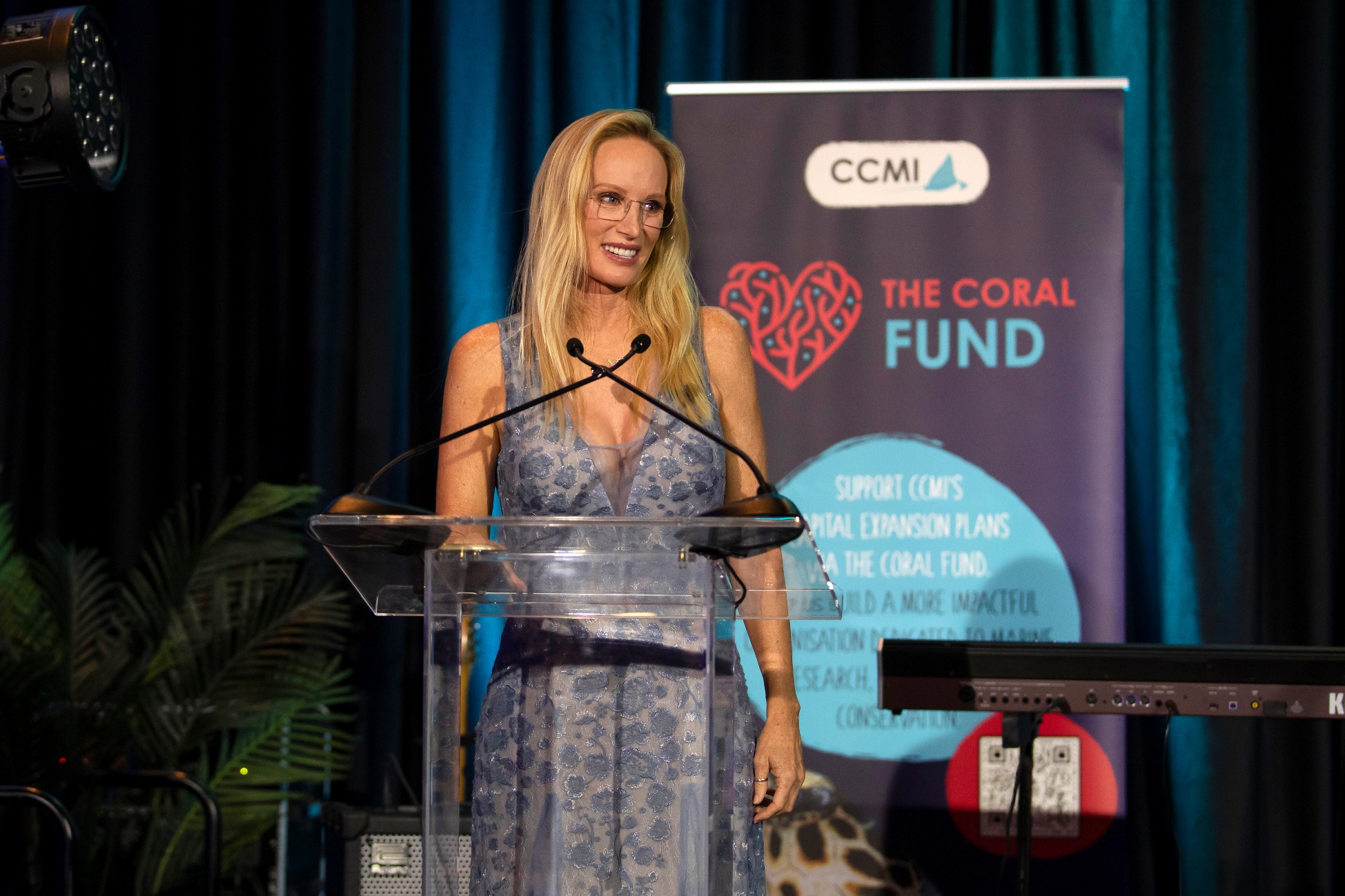
CCMI’s 25th anniversary celebrations included Tanya Streeter leading a freediving clinic for CCMI alumni, giving Festival of Seas keynote address
To help celebrate the 25th anniversary of the Central Caribbean Marine Institute (CCMI), the organisation enlisted the help of world record holding freediver and former Cayman resident Tanya Streeter. Invited to give the keynote speech at the annual Festival of Seas gala on 4 November 2023, Tanya eagerly agreed to also host a freediving clinic for young Caymanians who participated in education programmes at CCMI to give back to the Cayman community.
Returning to the island where she was born and raised, Tanya led a half-day freediving clinic at Sunset House with the support of Sunset Divers. CCMI education programme alumni were invited to register, and 11 Caymanians, ages 16-26 representing a span of 10 years of taking part in the range of CCMI education programmes, attended the clinic. Some of the alumni participated in more than one CCMI programme over the years, and several are now employed in a related industry in the Cayman Islands, a testament to the importance of CCMI’s scholarship opportunities for Caymanian students.
When asked what it meant to Tanya to host this freediving clinic in Grand Cayman, she said, “I cannot overstate what a huge personal impact it has on me to come back to have this opportunity to work with young Caymanians. They are associated with CCMI, so they know about the ocean and about how important ocean health is here for us. But to be able to connect with young people in a realm that I’m good at and is important to me, and to see them grow a little bit personally, is huge. It’s my absolute favourite thing to do!”
Called ‘the world’s most perfect athlete’ in 2002 by Sports Illustrated, Tanya discovered her record-breaking gift for freediving in 1997, and in the following decade broke 10 world records, many of them previously held by men. To this day, she still holds the longest-standing world record in the sport, having dived on a single breath to a depth of 525ft/160m in the No Limits discipline off the coast of the Turks and Caicos Islands in August 2002. If anyone is qualified to help others begin their journey into freediving, Tanya Streeter is at the top of the list.
The clinic started with a briefing and a meditation session, led by Tanya, to get the mind and body ready to freedive. Participants practiced meditation exercises, breathing techniques to help open the diaphragm and work the lungs and muscles, and important stretches. Next, Tanya gave an in-water safety briefing, which emphasized buddy pairs, proper in-water breathing techniques, and not pushing oneself too hard. In total the group spent about 90 minutes in the water in selected buddy pairs practicing freediving while under the watchful eye of CCMI’s in water safety teams. Tanya spent several moments with each freediver individually, observing them, and offering underwater support and topside coaching. After everyone had one-on-one coaching time with Tanya, the group snorkeled to the famous Sunset House mermaid statue, practicing their new, finely tuned freediving skills to dive to the mermaid (a depth of about 45-50 ft).
Before the clinic, participants had a wide range of skills and experiences in the water. Tanya provided one-on-one coaching, speaking to each person’s comfort level. One participant said it felt like it was only the two of them in the ocean. Tanya’s constructive corrections in the water helped participants realize instant success in their form and dives!
The following night, Tanya gave the keynote address to the more than 350 attendees at CCMI’s Festival of Seas gala at the Kimpton Seafire Resort & Spa. A passionate voice for the preservation of the marine environment, Tanya announced she would serve as a CCMI ambassador, focusing her energy on engaging the youth and young people in efforts to protect the ocean. She left attendees with the realization that the connection we have with the ocean is meaningful, and it paves the way to create protections and policies that will sustain the marine environment for the future.
While Tanya enjoys using her platform to communicate about the importance of marine conservation, she is very passionate about working with youth and introducing them to the ocean through freediving. “To see those barriers people are facing and to push through and grow even in a hour, and hour and a half. That’s huge. It’s absolutely my favourite thing to do.”
For more information about CCMI, please visit www.reefresearch.org.
About CCMI
CCMI is a not-for-profit organization founded in 1998 to protect the future of coral reefs, envisioning a world with vibrant oceans and healthy coral reef ecosystems. We seek to be the Caribbean’s premier marine research institute by delivering cutting edge research, transforming conservation strategy and developing education programmes of excellence – discovering and promoting real solutions to declining ocean health. Our plan is to invigorate key species and understand key ocean processes that drive reef resilience. We support early career scientists who are INNOVATING ways to improve coral reef health. We are TRANSFORMING conservation strategy and work to inspire the CHANGE that is needed to achieve our mission. CCMI are PIONEERS in the region working to reverse the declines of coral reefs.
-

 News2 months ago
News2 months agoIconic SS United States to become the World’s Largest Artificial Reef
-

 News3 months ago
News3 months agoBook Review – 52 Assignments: Underwater Photography
-

 Gear News3 months ago
Gear News3 months agoDYNAMICNORD – New German diving brand enters the British market
-

 News3 months ago
News3 months agoExploring Cenote El Pit: A Diver’s Dream
-

 Gear News3 months ago
Gear News3 months agoTry BARE drysuits (and maybe even win one!) this Friday with Sea & Sea at North West Dive Fest
-

 Marine Life & Conservation3 months ago
Marine Life & Conservation3 months agoBook Review: Coral Triangle Cameos
-

 Blogs2 months ago
Blogs2 months agoDive the Egyptian Red Sea this Autumn with Regaldive
-

 News3 months ago
News3 months ago2024 Ocean Art Underwater Photo Competition Announced















